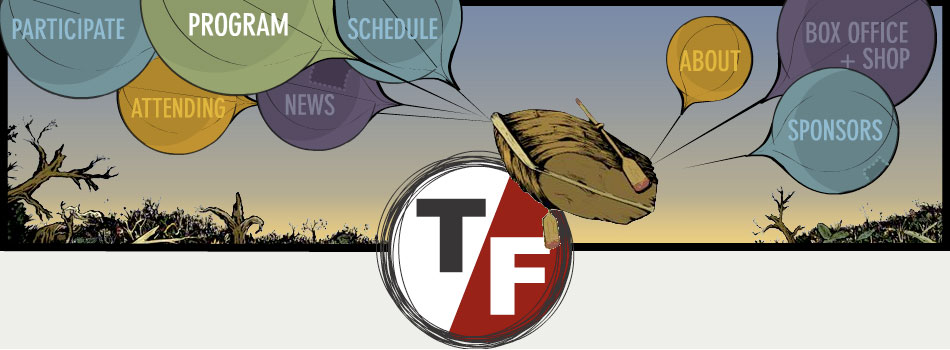Venues

Missouri Theatre
The Missouri Theatre Theatre Center for the Arts (203 S. Ninth St., 875-0600) is Columbia's last and grandest movie palace. It opened in 1928 with Buster Keaton's Steamboat Bill Jr. In 1953, Commonwealth Theatres bought the theater and ran it into the ground in the 1980s before selling it to United Artists, which wanted to gut the theater to make it into a multiplex. Thankfully, it was saved in 1987 when the Missouri Symphony Society bought it for their new home. In 2001, Ragtag and the symphony society began raising funds for a new projector; on November 15, 2002, the theater showed its first 35 mm feature in almost 15 years, a sold-out screening of Sing-along Sound of Music. Since then, Ragtag and MOSS have presented film events including the mid-Missouri premieres of Bowling for Columbine, Winged Migration and An Inconvenient Truth. After a multi-million-dollar makeover, the Missouri Theatre opened again May 21, 2008, and has quickly taken its place as mid-Missouri's premier showplace.
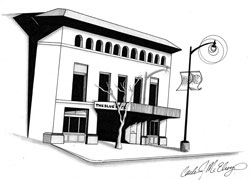
Blue Note
The Blue Note (17 N. Ninth St., 874-1944, www.thebluenote.com) has been a Columbia institution for concerts, dances and other shows since 1980. The seed was planted in 1975 when Philadelphia native Richard King, on his way to California, made a detour to visit a friend going to graduate school at MU. Five years later, King partnered with Phil Costello, a bartender at a place on the Business Loop called Brief Encounters (now Club Vogue). They bought the bar and renamed it the Blue Note, and it soon became a haven for the best independent rock of its day, including Hüsker Dü's last show, the Pixies and the Replacements. Then in the late '80s, while drinking at Booches, King learned that an old vaudeville house, the Varsity Theater, was for sale. By March 1990, after major improvements, King moved the Blue Note there. King continues to renovate the theater — including the restoration of tiered theater seating in the balcony — as part of the downtown historic district.
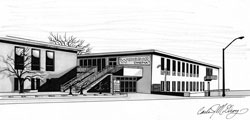
Windsor Cinema
1405 E. Broadway — north side of Broadway, west of Ripley. Accommodating approximately 300 persons, this venue's name recognizes the gift of alumna Gertrude Windsor at the time the college built Wood Quadrangle in the early 1960s.
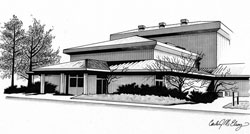
Macklanburg Cinema
100 Willis Ave. — just south of Broadway on Stephens campus. In the vicinity of Macklanburg a frame structure housed the original playhouse, which functioned from shortly after the end of World War II until fire destroyed it in the early 1980s.
Lela Raney Wood Hall
The newly renovated Kimball Ballroom in Lela Raney Wood Hall re-opened in April 2006, after being closed for 11 years. It was built in 1938 in just 90 days at a cost of $175,000.
In those days, Stephens women were expected to dress for dinner and scheduled their dance partners with dance cards. The sororities had chapter rooms on the balcony, and the top two floors were a dormitory. The basement once housed a bowling alley.
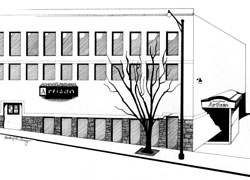
Cherry Street Artisan
111 S. Ninth St., southwest corner of 9th and Cherry, 817-3274, cherrystreetartisan.com. Cherry St. Artisan serves as T/F's box office and headquarters for the festival, as well as an informal greenroom of sorts for guests and attendees. The Artisan is an arts café and coffee house that also features a stage and gallery space. Open since July 2002, the Artisan is located in the newly renovated Atkins City Center Building, which was originally a Montgomery Ward store. Started after plans to convert a downtown laundromat into an arts center fell through, the Artisan has created a unique gathering place for the community. The Artisan's semi-basement locale provides a different perspective on the city, through its sidewalk-level windows. Considered by many to be downtown Columbia's living room, the Artisan provides a warm, welcoming and eclectic environment where locals of all ages partake of the arts (visual, musical, literary) along with coffee, beer, wine and a full-service menu from the kitchen, which serves breakfast, lunch, dinner and homemade snacks. It's open Monday-Wednesday 6:30am - 11pm, Thursday and Friday 6:30am - midnight, Saturday 7am - midnight, Sunday 2pm - 10pm. Special hours for T/F: Sunday 9am - 10pm.

Forrest Theater @ Tiger Hotel
23 S. 8th St., in Tiger Ballroom. Built in 1928 and, at nine stories, still the tallest building downtown, the Tiger Hotel and its impressive ballroom hosted Columbia's biggest social functions. It provided a convenient stopover for salesmen and other travelers who arrived by train. The rise of the automobile, however, sent the hotel into a long period of decline as new hotels popped up along the interstate. Originally, the Missouri Theatre planned to house a hotel above it, but when the owners of the Tiger heard about that, they threatened to put a theater in their building; cooler heads prevailed and they each carved out their own niche in the downtown. Ambitious plans to renovate the property over the years bankrupted several owners, but a massive renovation in the mid-1990s revitalized the hotel into a senior living center. In 2003, flush from the sale of some local radio stations, new owners bought it and are now converting it into a long-term residential hotel. They have restored the Tiger sign on the roof, a longtime downtown landmark, and erected new neon signs on the street entrance. For the festival, True/False renames the ballroom after local icon Forrest Rose, a well-loved columnist and stand-up bass player who passed away in March 2005 and whose graceful prose and soulful community spirit embody the very best of Columbia.
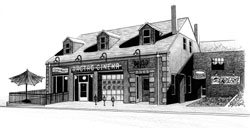
Ragtag Cinema (Big and Little)
10 Hitt Street, 441-8504, ragtagfilm.com. The Ragtag story begins in November 1997 when Paul Sturtz met David Wilson at a show by Mr. Quintron at the original Shattered ("in the broken heart of downtown") — now the space that is Cherry Street Artisan. The last downtown movie house had been shuttered by the corporate powers-that-be, and so they concocted the Ragtag Film Society. Richard King of the Blue Note gave them the OK to use that theater Sunday and Wednesday nights, and they launched the harebrained scheme in January 1998 with a couple of "borrowed" 16 mm projectors. The film society built a strong cult following over the next two years, and three bright entrepreneurs — medievalist Tim Spence, farmer Holly Roberson and baker Ron Rottinghaus — dreamed up the idea of making Ragtag a seven-day-a-week storefront cinema. And so, in May 2000, the Ragtag Cinema was born. Ragtag is often credited with saving Columbia, but people tend to exaggerate about such things. In February, 2008, Ragtag made the move to a warehouse from 1935, first used as a Coca-Cola Bottling factory and then as the Kelly Press printing plant, and lived happily ever after.
